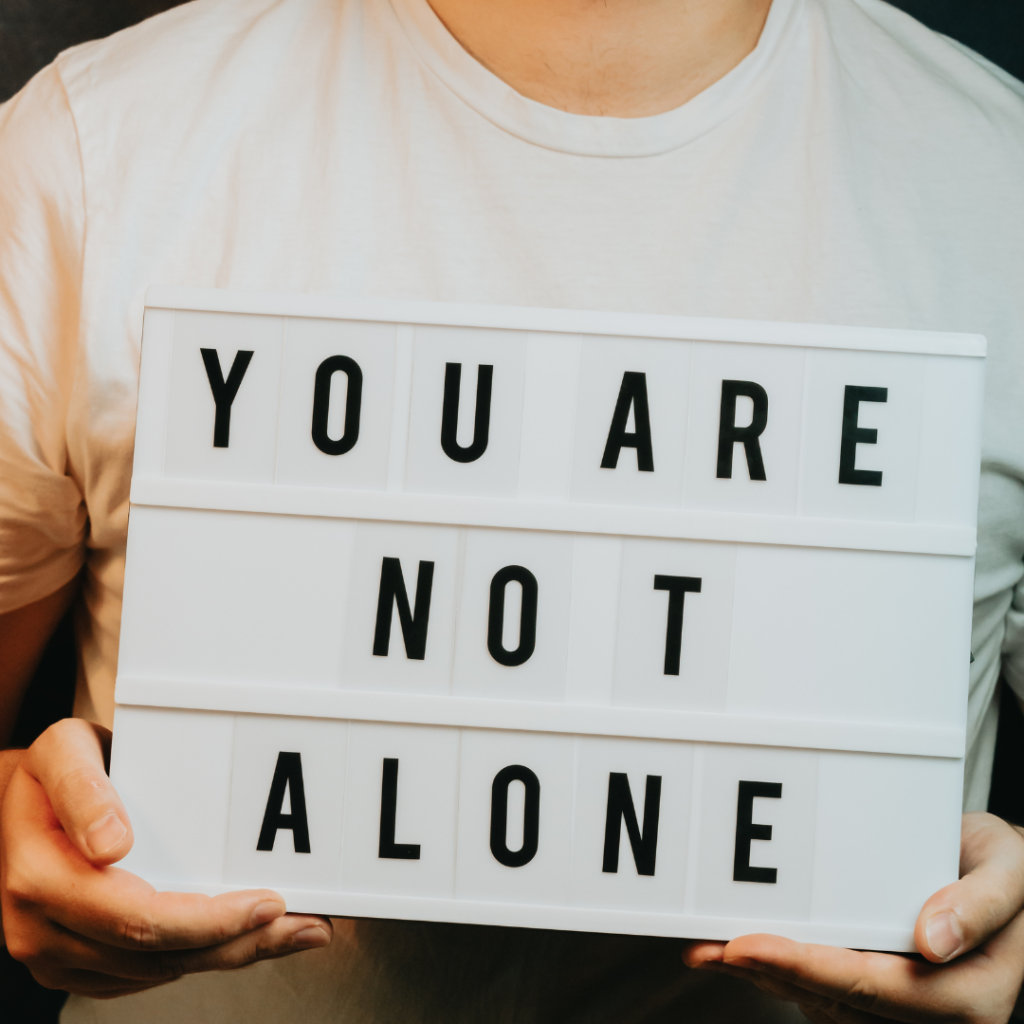Richard struggled with his mental health for years. It started when his life took a somewhat downward trajectory. He cites a series of events that had happened. He had found himself heartbroken after the end of a relationship. Shortly after, his academics had taken a hit. He was then retrenched from his job and then came the sudden death of his father.
This left him devastated and set him into depression. He would eventually try to take his life and land in the hospital. He says; “My relationship ended with a heartbreak. I started to fail in my studies. I was trying to deal with all of this, then my place of work retrenched some staff and unfortunately, I was on the list. Then I lost my Father. All of these set me off into depression and I tried to take my life.”
Ginika is another young Nigerian who also struggled with her mental health for years. She states that she knew something was wrong but just could not place what it was. She says; “ In my early 20s, I started having intense anxiety and had trouble sleeping. I was deeply unhappy and I constantly wanted to be someone else. I would lock myself in for days and not go out. I would often cry myself to sleep. I was struggling and my grades were getting affected too.”
A UN report says many young people in Nigeria struggle with mental health issues. It states that 1 in 6 young Nigerians suffer from poor mental health. According to the report, 1 in 6 young Nigerians say they often feel depressed, have little interest in doing things, or are worried and anxious.
Addressing Societal Attitudes
A lot of efforts have been made over the years by advocacy groups and the government to help tackle mental health issues in Nigeria and broaden the conversation so that people will seek help. However, stigma persists. There is still so much judgment for those who are seen as mentally ill. Richard says a lot of judgment was thrown his way when people learned of his diagnosis.
He was in a psychiatric facility for eight months and was diagnosed with severe bipolar disorder. His family was very unsupportive and he stated that he felt like a failure. He says; ‘’My world felt like a shattered world. I was branded weak, a shame, and a failure. I felt so terrible and had to cut off from them for my own peace of mind.”

Ginika says she did some personal research and got in touch with a therapist. However, she kept this information from her family and friends. She says she was deeply afraid they would not understand and may think she had gone insane and this would become public knowledge. She says; ‘’ I was so afraid to tell my family that I was talking to a therapist. My family does not believe in things like that. They would think I was losing my mind and I was scared people would get to know about my condition and call me insane. You know how judgmental Nigerians can be.’’
For years, in Nigeria, mental illness has often been associated with demonic possession or spiritual afflictions. This has led to the stigmatization of people suffering from poor mental health. There has been a general lack of understanding of the issues surrounding mental health, and this has greatly discouraged those who suffer in silence to talk about it and seek help.
A counselor and licensed therapist, Abolanle Efeturi believes that there is still not enough awareness surrounding mental health in Nigeria. She opines that addressing the stigma of mental health in Nigeria requires deliberate and continuous awareness. She says; ‘’There is stigma around mental health in Nigeria because there is not enough awareness. People do not even know the difference between mental health and mental illness. There are cultural factors that still believe mental health is spiritual and those who experience it, shy away hence the stigma is strengthened.’’
Efforts in Addressing the Stigma of Mental Health in Nigeria
Halimat Olaniyan is the founder of Adolescent and Youth Health (AFAYHealth). The foundation provides information and services to promote the well-being of children, adolescents, and young people. The foundation has created several projects charged with creating safe spaces for young people to express themselves. Over the years, many advocacy groups such as this, have sprung up in a bid to address the stigma surrounding mental health in Nigeria and to also proffer solutions. She states that that as a society, we must begin the introduction of mental health discuss across the board. She says; “There should be an introduction to mental health education in schools, churches, and communities.”
We must also begin to look at the training and re-training of mental health practitioners in this area. A lot are not trained and are ill-equipped to deal with the teeming number of people who require help. Ginika’s experience in one visit to the hospital supports this. She had tried to go to the hospital once but was put off by the service rendered. She says; “They were quite dismissive of my complaints and it felt like I didn’t know what I was saying or doing. I was disappointed because it was a medical facility and I had high hopes.”
On January 5, 2023, the Mental Health Bill 2021 was signed into law in Nigeria. Advocates believe this is a step in the right direction but as always, we need stronger implementation of these laws. Laws alone will not give us the required change to end the stigma of mental health in Nigeria. To improve the overall mental health services in Nigeria, we must also channel outreaches towards combating cultural practices. We must begin to build strong societal institutions that provide the necessary support that people need. It is important that starting from families, we begin to educate on mental health and mental disorders. Society must rise to its obligations, and not continue to be enwrapped in ignorance and judgment.
The government must also rise to play its part in support, through the use of the Mental Health Act by promoting adequate distribution of information and knowledge using various mass media preferable to the locality. There should be adequate funding allocated because the work is immense and requires financial backing to run.
When these changes are implemented, we present a serious front in eradicating the stigma surrounding mental health.
Richard is grateful to be alive, citing the interventions and proper diagnosis he got. A lot of Nigerians are not so lucky. We must therefore continue to do our part to reduce this number.






